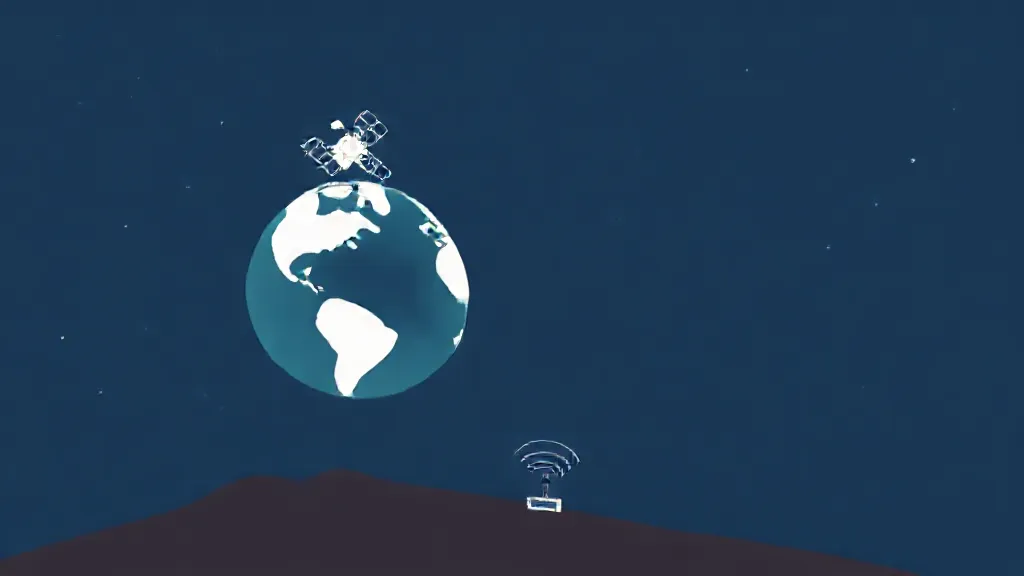Global Positioning System (GPS) technology has become an integral part of modern navigation, enabling users to determine their precise location anywhere on Earth. One of the most fascinating aspects of GPS is its ability to function without internet access. This article delves into the underlying principles of GPS technology, the role of satellites, and how users can rely on GPS for navigation even in remote areas without cellular or Wi-Fi connectivity.
The Basics of GPS Technology
At its core, GPS is a satellite-based navigation system that consists of three main components: satellites, ground control stations, and GPS receivers. The system was developed by the United States Department of Defense and became fully operational in 1995. GPS satellites orbit the Earth at an altitude of approximately 20,200 kilometers and continuously transmit signals containing their location and the precise time the signal was sent.
A GPS receiver, such as those found in smartphones or dedicated GPS devices, listens for these signals to determine its location through a process called trilateration.
How Trilateration Works
Trilateration is the mathematical method used to calculate the position of a GPS receiver based on the distance from at least four satellites. When a GPS receiver picks up signals from multiple satellites, it measures the time it takes for each signal to arrive.
Given that radio signals travel at the speed of light, the receiver can calculate the distance to each satellite. By knowing the locations of the satellites and the distances to them, the receiver can pinpoint its exact location on Earth. This process does not require any internet connection, as all necessary calculations are performed locally within the GPS receiver.
The Role of Satellites in GPS Functionality
The GPS constellation consists of at least 24 operational satellites, strategically positioned to ensure that at least four satellites are visible from any point on Earth at any given time. This redundancy is crucial for accurate positioning. Each satellite is equipped with atomic clocks that provide precise timing, which is essential for the accurate calculation of distances.
The satellites continuously broadcast their location and the time the signal was sent, allowing GPS receivers to triangulate their position effectively.
Why GPS Does Not Rely on Internet Connectivity
One of the key advantages of GPS technology is its independence from internet connectivity. Unlike many location-based services that rely on data connections to access maps or additional information, GPS receivers utilize satellite signals for positioning.
This makes GPS particularly valuable in remote areas, such as mountains or deserts, where cellular service may be unavailable. Additionally, GPS functions in various environments, including urban areas, where buildings may obstruct internet signals but not satellite signals.
Limitations of GPS Without Internet Access
While GPS can provide accurate location data without internet access, there are limitations to consider.
For instance, GPS receivers typically rely on preloaded maps for navigation. Without internet access, users may not have access to real-time traffic updates or the latest map data. This can impact route planning, especially in dynamic environments where road conditions may change frequently.
Moreover, GPS accuracy can be affected by physical obstructions, such as tall buildings or dense foliage, which can cause signal degradation.
Enhancing GPS Functionality with Offline Maps
To mitigate the limitations of GPS without internet access, users can download offline maps in advance. Many navigation apps allow users to save specific areas for offline use, enabling them to navigate even when disconnected from the internet.
By combining GPS functionality with offline maps, users can enjoy the benefits of accurate location tracking while having access to necessary navigational data without requiring a data connection.
The Future of GPS Technology
As technology continues to evolve, the capabilities of GPS systems are also advancing. Innovations such as the integration of GPS with other positioning technologies, including GLONASS, Galileo, and BeiDou, are enhancing the accuracy and reliability of location services.
Furthermore, the development of new satellite systems and improved receiver technology promises to expand the utility of GPS in various applications, from autonomous vehicles to precision agriculture.
Conclusion: The Importance of GPS in Modern Navigation
In summary, GPS is a remarkable technology that provides users with accurate location information without the need for internet access. By relying on a network of satellites and sophisticated algorithms, GPS receivers can determine their position anywhere on Earth.
As reliance on GPS continues to grow in our daily lives, understanding how this technology works and its independence from the internet is essential for users who depend on it for navigation and location-based services.
